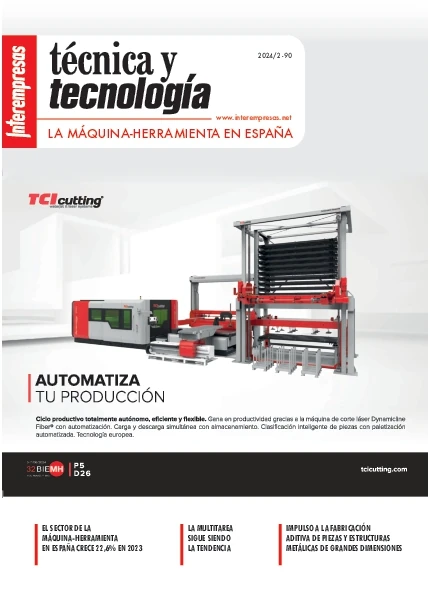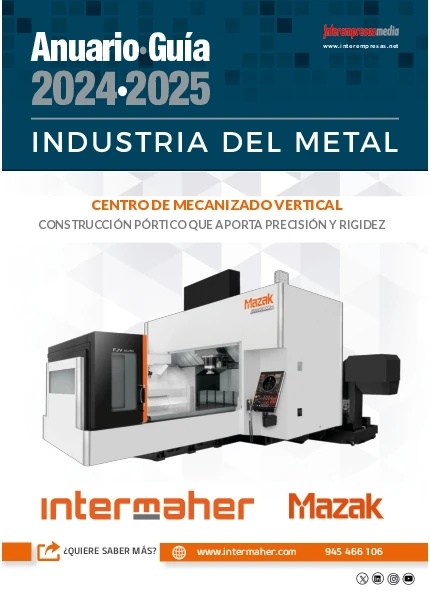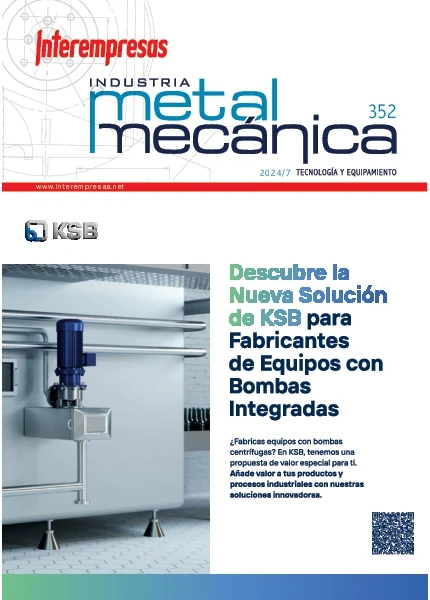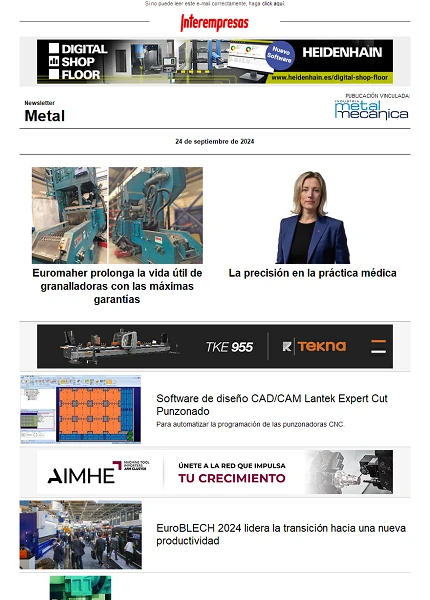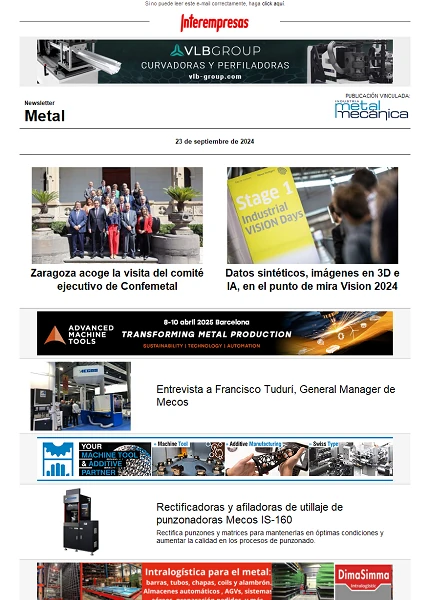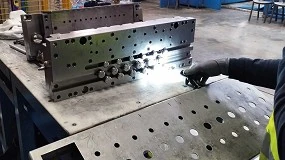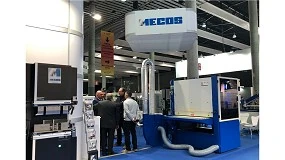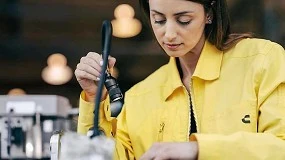Danobat, en los orígenes de la máquina-herramienta vasca
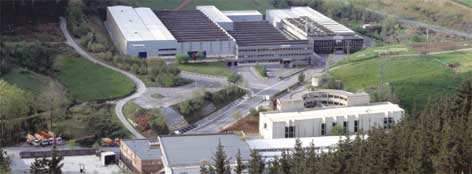
Fue el principio de una historia plagada de dificultades, durante el siglo pasado las guerras mundiales y la Guerra Civil española, pero también de una serie de circunstancias que favorecieron el desarrollo del sector y el de un modelo empresarial en Elgoibar promovido por profesionales de talleres ya existentes, como torneros o ajustadores, que fueron independizándose de las empresas donde prestaban sus servicios para crear otras nuevas.
A finales de 1953, un grupo de trabajadores de Arana y Uribe deciden crear un taller para construir máquinas-herramienta, con el nombre Danobat. La decisión de partida es independizarse de sus respectivas empresas y talleres para sacar adelante una iniciativa propia, de carácter cooperativo y en la que todas pudiesen participar a partes iguales. Era el comienzo de un modelo empresarial particular de Elgoibar, muy diferente al modelo tradicional y que se anticipaba a la experiencia cooperativa de Mondragón.
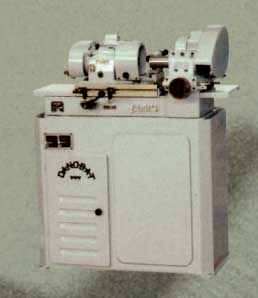
Las máquinas
Desde los inicios se fabricaron rectificadoras universales, siempre sometidas a mejoras. La primera data de 1954. Era el modelo RE-600 para el rectificado universal de exteriores, que dio paso a una rectificadora de interiores, el modelo RIL-600, desarrollado cuatro años más tarde. En 1964 se opta por desarrollar rectificadoras exteriores angulares, que permitieron a Danobat introducirse en el rectificado exterior de producción y que a día de hoy es uno de los principales productos de la marca.
Paralelamente, a finales de 1955, un grupo de trabajadores proveniente en su mayoría de Estarta y Ecenarro decidió crear Construcciones Mecánicas Eguzki para fabricar tornos revólver manuales, también en forma de cooperativa. Uno de sus desarrollos más brillantes fue el primer torno programable automatizado con componentes neumáticos de 1964, que revolucionó la industria del decoletaje por su gran capacidad de producción, facilidad de manejo y programación, y su bajo precio.
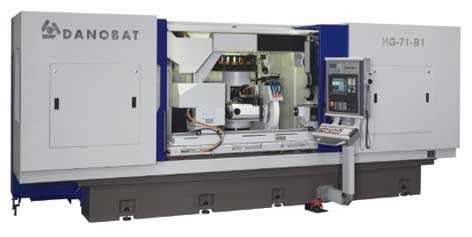
Poco a poco Danobat, Eguzki y Acme-Deva, las tres empresas que más apostaban por el modelo cooperativo, van distanciándose del resto de los socios de Acme, asociación que abandonan en 1967, y acercándose más entre ellas, con la idea incluso de fusionarse, una idea también alentada por Caja Laboral. En 1969 se produce finalmente la fusión en Danobat S. Coop. de las tres empresas especializadas en rectificadoras (Danobat), tornos (Eguzki) y máquinas especiales (Acme-Deva).
Caja Laboral fomentó la constitución de grupos comarcales, una estructura basada en la proximidad geográfica que se entendía como la más adecuada para la colaboración entre cooperativas. En el Bajo Deba, el grupo comarcal se denominó Debako y todas las cooperativas de esta área se dedicaban a la construcción de máquina-herramienta. El Grupo Debako, en realidad una agrupación sectorial, se crea finalmente en 1983 con la participación de Danobat, Soraluce, Goiti y Txurtxil. Seis años más tarde se incorpora al Grupo Debako la cooperativa Izarraitz y se constituye D+S Sistemas A.I.E. para la fabricación de máquinas especiales y líneas transfer, como resultado del acuerdo entre Danobat y Soraluce.
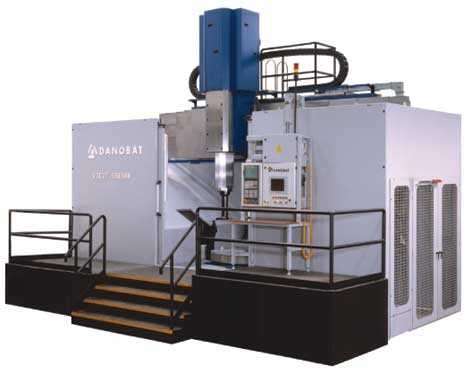
En el ámbito de las rectificadoras, además de los desarrollos continuados, se pueden destacar acuerdos como el que se llevó a cabo en 1975 con la japonesa Toyoda, según el cual Danobat se hace con la licencia para fabricar rectificadoras angulares de producción, lo cual ubica a Danobat entre los principales suministradores de la industria de automoción.
Tras la incorporación en el 78 del CNC a las rectificadoras de exteriores, también se puede destacar el acuerdo de 1986 con Cincinnati Milacron para el lanzamiento de un nuevo modelo de rectificadoras exteriores, desarrollado en conjunto por ambas empresas.
En el campo de los tornos, el primero de control numérico, el Danumeric-4, se presentó en 1978 y fue el origen de una gama los tornos Danumeric y Danocenter, de dos y cuatro ejes.
Mientras tanto se seguían construyendo rectificadoras de superficies planas y en 1979 se lanzó la primera de guías de doble columna, que por su peso y tamaño añadía una complejidad a los procesos de mecanizado y montaje. La incorporación del CNC a este tipo de rectificadoras no se produce hasta 1987.
Al mismo tiempo esta planta de Deba seguía realizando proyectos de máquinas especiales y transfer, producto que también fabricaba Soraluce.
La sucesión de nuevos desarrollos es continua y representa sin duda la vocación empresarial de tantas personas que han contribuido a la creación de lo que hoy es el Grupo Danobat, creado en 1992 como una agrupación sectorial estratégica cuyo objetivo es dar continuidad al Grupo Debako. Integra las siguientes empresas:
- Danobat: En la planta de Elgoibar fabrica rectificadoras cilíndricas y planas, y tornos, y en la planta de Azkoitia, sierras.
- Soraluce: fresadoras y centros de fresado, en sus plantas de Bergara y Osintxu.
- Goiti: punzonadoras, plegadoras y láser, en Elgoibar.
- Lealde: tornos (en la planta de Ispaster).
- D+S Sistemas (ahora se llama Danobat): Sistemas máquinas especiales y líneas transfer (Elgoibar).
- Estarta Rectificadoras: rectificadoras sin centros (Elgoibar).


